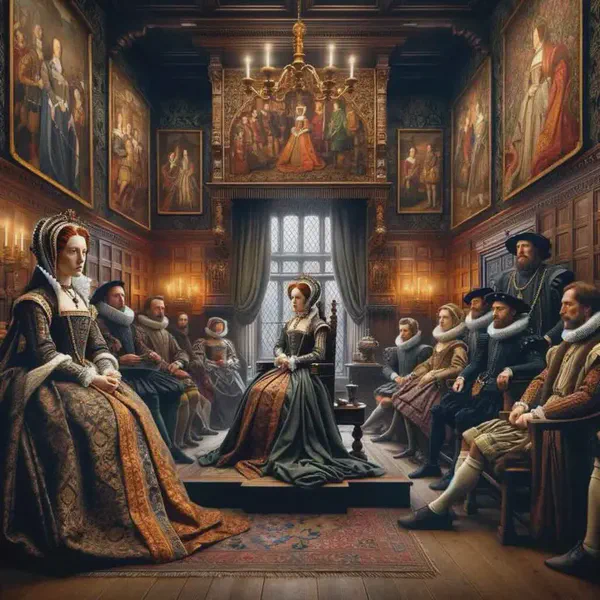On June 15, 1567 in Celtic History
Mary queen of scots last night in edinburgh prior to her imprisonment

Mary Queen of Scots last night in Edinburgh, at the house of Sir Simon Preston, the Lord Provost, on the Royal Mile, prior to her imprisonment
Sir Simon Preston of Craigmillar (circa 1510 – 1589) was a notable Scottish nobleman and supporter of Mary, Queen of Scots. His family had a long history in Edinburgh and were influential in the region. Here are some key points about him:
Position and Influence
Sir Simon Preston was the Lord Provost of Edinburgh, a position equivalent to a modern-day mayor, but with considerably more power, especially in the context of 16th-century Scottish politics.
Association with Mary, Queen of Scots
Preston is particularly remembered for his association with Mary, Queen of Scots. As a loyal supporter, he played a significant role during the turbulent times of her reign. His house in Edinburgh, often mentioned in historical accounts, was a place of significance during this period.
Mary’s Imprisonment
One of the most notable incidents involving Preston was when Mary Queen of Scots was held in his house on the Royal Mile in Edinburgh. This occurred after her surrender at the Battle of Carberry Hill in 1567, which led to her abdication and eventual imprisonment. His residence, therefore, became a temporary prison for the Queen before she was moved to Lochleven Castle.
Craigmillar Castle
The Preston family owned Craigmillar Castle, located near Edinburgh. This castle is often associated with the plot to murder Mary’s second husband, Henry Stuart, Lord Darnley, known as the “Craigmillar Bond.” While it’s uncertain how involved Preston was in this plot, his family’s residence was a key location in the events surrounding Darnley’s death.
Later Life and Legacy
After Mary’s forced abdication, Preston continued to be involved in Scottish political life. He navigated the complex political landscape of the time, which was marked by the struggle between different factions and the influence of England.
Sir Simon Preston’s life and his interactions with Mary Queen of Scots offer a fascinating glimpse into the political and social dynamics of 16th-century Scotland. His role in these events is a testament to the intricate web of loyalties, power struggles, and political maneuvers that characterized this period in Scottish history.
More From This Day







After Henry VIII suppresses the Chapter of St Patricks Cathedral it is restored on this date
June 15, 1555